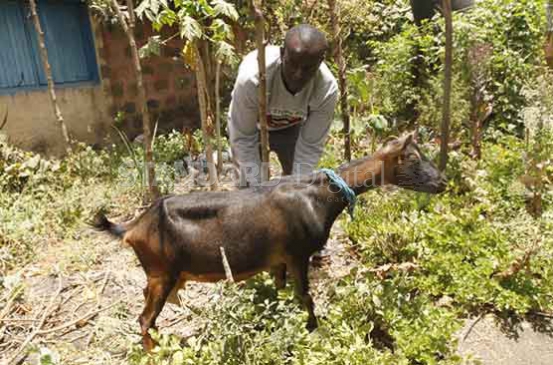×
The Standard e-Paper
Join Thousands Daily

NAIROBI: Francis Wachira’s passion for dairy goat rearing started by chance back in 2012 after meeting a group of women in Ruai.
Wachira was so impressed by the nutritional value of goat milk and the profit the women were churning out of their flock that he decided to give dairy goat farming a try.







